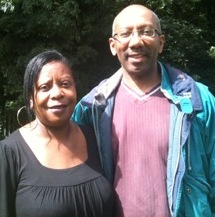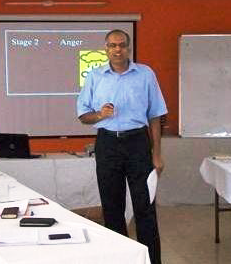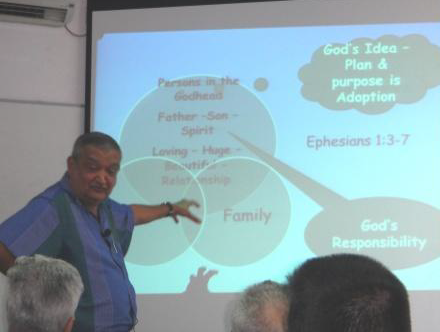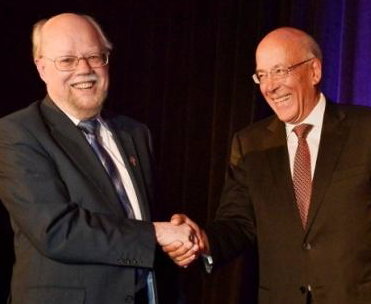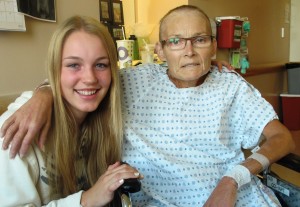Dear Brothers and Sisters in Christ,
 In Clean Jokes and Inspirational Stories, Rod Dykstra tells about a successful young executive who was driving through the neighborhood in his new Jaguar. Suddenly a brick smashed into the side of his car. He slammed on his brakes, and jumped out to confront a guilty-looking small boy standing nearby.
In Clean Jokes and Inspirational Stories, Rod Dykstra tells about a successful young executive who was driving through the neighborhood in his new Jaguar. Suddenly a brick smashed into the side of his car. He slammed on his brakes, and jumped out to confront a guilty-looking small boy standing nearby.
 “Who are you and what is going on here?” yelled the executive. “This is a new car and what you just did is gonna cost you a lot of money. Why did you throw that brick?”
“Who are you and what is going on here?” yelled the executive. “This is a new car and what you just did is gonna cost you a lot of money. Why did you throw that brick?”
The boy was apologetic and said, “Please mister, I am sorry. I didn’t know what else to do. I threw the brick because no one else would stop. With tears streaming down his face, he pointed to a person lying on the ground by the parked car. “It’s my brother,” he said, “and he rolled off the curb and fell out of his wheelchair and I can’t lift him up. He is hurt and is too heavy for me. Would you please help me get him back into his wheelchair?”
Now moved beyond words, the driver lifted the handicapped boy back into the wheelchair. He took out his handkerchief and dabbed gently at the fresh scrapes and cuts. A quick look told him that everything was going to be okay. He never did get the dent in his car repaired. He left it there to remind himself that he should not journey through life without helping others.
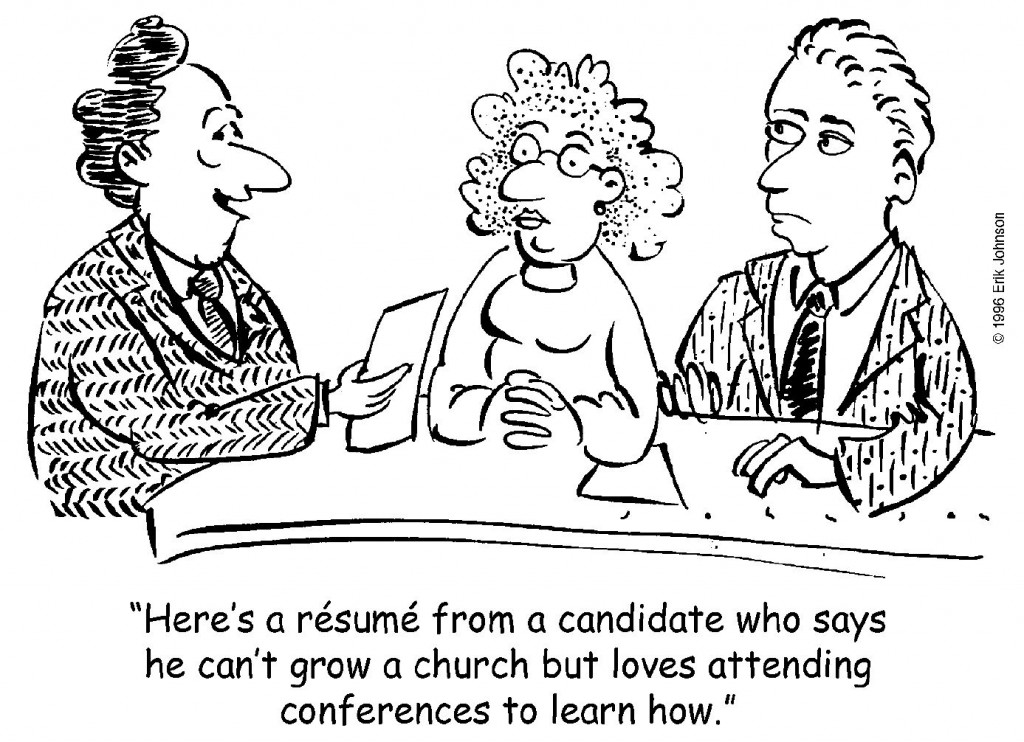
We have just completed the 2012 round of U.S. Regional Conferences. The theme was our participation in mission with Jesus. I was asked a few times, why are we so concerned about mission? If God has already reconciled all people to himself in and through Jesus Christ (2 Corinthians 5:17-19), why are we so concerned with “reaching” them? Though these questions are logical, they imply that the mission of reaching people with the gospel is merely one option on a menu that God has given to the church from which to choose. But mission is not an option for us, and if we think it is, we need to reorient our thinking. In fact, doing so was the over-arching theme of this year’s conferences.
In his conference presentations, Gary Deddo reminded us that we first must ask the question, who is God? The Bible answers that the one God exists as a triune communion of love. In his being (nature) he is love (1 John 4:8), and this explains everything that he does and how he does it. In love, God created the cosmos as a time and place in which to share his triune love and life with his creation. Because his love never ceases or diminishes, he became Redeemer to rescue his creation from its inability to live in communion with him. Before the beginning of time and space, as we experience them, God our Creator and Redeemer has been “on mission.” God the Father sent his Son Jesus to accomplish that mission and Jesus trained others, who in turn trained others. We are part of a long line of those who are called to receive this training.
This, then, is how we should see ourselves. Jesus sends the Holy Spirit to call, form and equip the church to share in his ongoing ministry, which is fulfilling the Father’s mission to the world. In other words, the church exists because of, and for, God’s mission. God has not given us a choice of spiritual “busy work” just to keep us occupied. We are called by God to participate as partners and co-workers in his mission. The Christian life is not a spectator sport. We are following Jesus as he continues by the Holy Spirit to seek true worshipers of his Father.
In her conference presentations, Cathy Deddo spoke about understanding our participation in God’s mission. Since the Ascension and Pentecost, what God is doing in the world in and through the church has principally to do with discipleship—becoming followers of Jesus in daily communion with him. This aspect of God’s mission is not so much about “getting people saved,” because God has accomplished that already. Rather, the mission is about illumination, education and application, all of which involve repentance and living trust in our living Lord. Jesus is working in people’s lives in all three of these areas through the Holy Spirit. The church is called to bear witness to Jesus (Acts 1:8) by proclaiming who he is and what he has done for us, sharing as we do in his ongoing acts of healing, mercy and forgiveness. This is why we proclaim the stunning truth of the gospel, and invite others to join us as disciples who are being transformed into his likeness day by day.
In my conference presentation, I illustrated how many of our members around the world are already doing this. Dan Rogers showed how Jesus commissioned people to participate in his ministry in the New Testament church. The other presenters further reinforced how we, as congregations and individuals, can be involved with Jesus in ministering to others.
Do you see the difference between choosing what kinds of things to do as ministry, and actually participating in the already ongoing ministry of Jesus? It does require a shift in our thinking, which in turn leads to reordering our priorities. It is not our job to make something happen that is not happening. Rather, we are called to discern where and how to “get with the program” that Jesus by the Holy Spirit is actively working out and equipping us to share in. We get to go to work with God as he directs and enables us. Cathy pointed out how Jesus’ feeding of the 5000 with the disciples’ few loaves and fish is a great example of how Jesus gets us involved in what he’s doing, using what we have.
Participating in mission with Jesus involves being in the world, even though we are also cautioned to be not of it. We cannot remain aloof from the world’s problems, and we must be responsive even when the world “heaves a brick at us” to gain our attention. As Karl Barth once pointed out, the church cannot say “yes” to the world, if it cannot also say “no.” Jesus was a friend of sinners, yet without sin of his own. Today, Jesus is doing this ministry principally through his human presence in the world, in and through his body, the church. We are called to stand with Jesus in solidarity with the world, sharing its plight, proclaiming and demonstrating to our fellow human beings our one and sure hope.
This, then, is the answer to the question, Why should the church be concerned about mission? The answer is simply this: mission is what we are for. So let us be among our Lord’s devoted disciples—those who not only hear his voice, but actively join with him as he, in the power of the Holy Spirit, helps people live into the reconciliation with God that forever is their’s in and with him.
I am delighted that most of us do not need a brick thrown at us to awaken us to what we can be doing with Jesus. It is with great thanks that I can say, surely the Spirit of the Lord is graciously and vitally at work among us!
With love in Christ’s service,
Joseph Tkach

